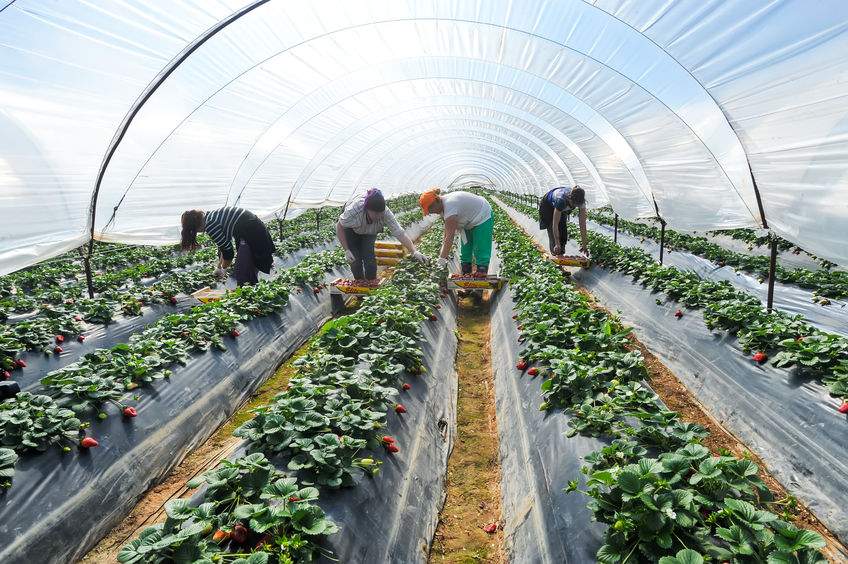Farmers must pay for 'privileged access' to low-skilled labour, report suggests

A seasonal agricultural workers scheme could be the only possible sector-based work migration scheme permitted for low-skilled workers after Brexit, a new report suggests.
It also calls for farmers to pay out more for the “privileged access” to post-Brexit labour they will receive.
The Migration Advisory Committee (MAC) has published its report on the impact of European Economic Area (EEA) migration in the UK.
The report explores current and likely future patterns of EEA migration into the UK and makes a series of recommendations for designing the UK’s post-Brexit system for work-based immigration.
The Committee sets out a general principle that policy changes should make it easier for higher-skilled workers to migrate to the UK than lower-skilled workers.
It recommends that EU citizens should not necessarily be preferred over non-EU migrants, on the assumption that UK immigration policy will not form part of an agreement with the EU.
Under the current system, workers from the EEA, which includes all EU countries, enjoy freedom of movement, travelling and working within the area without visas.
'Privileged access'
Despite an emphasis on higher-skilled workers, the report said not bringing in a new seasonal agricultural workers scheme (SAWS) could lead to closures in the fruit-picking industry.
It said: “If a seasonal agriculture worker scheme was introduced we recommend that employers pay a higher minimum wage in return for the privileged access to labour this scheme would give the sector, in order to encourage increases in productivity.”
The government has confirmed that it will study the findings of the report, but plans to permanently reintroduce SAWS or any similar scheme are not yet definite.
However, both the Home Secretary Sajid Javid and Defra Secretary Michael Gove confirmed earlier this month that a two-year pilot scheme will give the green light for British farmers to attract non-EU workers.
The scheme will be capped at just 2,500 workers a year as part of the two-year trial.
While welcomed as a step in the right direction, farm groups and associations have said the '2,500' figure will have "little effect" on the current shortages UK farms are facing.
'Fails to recognise'
Meanwhile, the CLA, which represents 30,000 farmers and rural businesses, said the MAC report "fails to recognise" that the need for seasonal labour within the rural economy is far broader than just farming.
CLA President, Tim Breitmeyer said: “Tourism and the agri-food industry require a constant supply of multi-skilled labour. Putting a stop to this pipeline will jeopardise the future viability of many rural businesses and encourage the moving of production offshore.
“We are against an arbitrary immigration cap and will continue to work with the Government to ensure post-Brexit immigration policy is as flexible as possible.
“We want to see the supply of migrant labour to rural businesses maintained and increased to boost growth and productivity. These workers are critical and without them the rural economy will struggle to survive,” Mr Breitmeyer said.
The government says it will listen to the Committee's report and bring in an immigration system that works for the whole of the UK, adding: "EU citizens play an important and positive role in our economy and society and we want that to continue after we leave".








